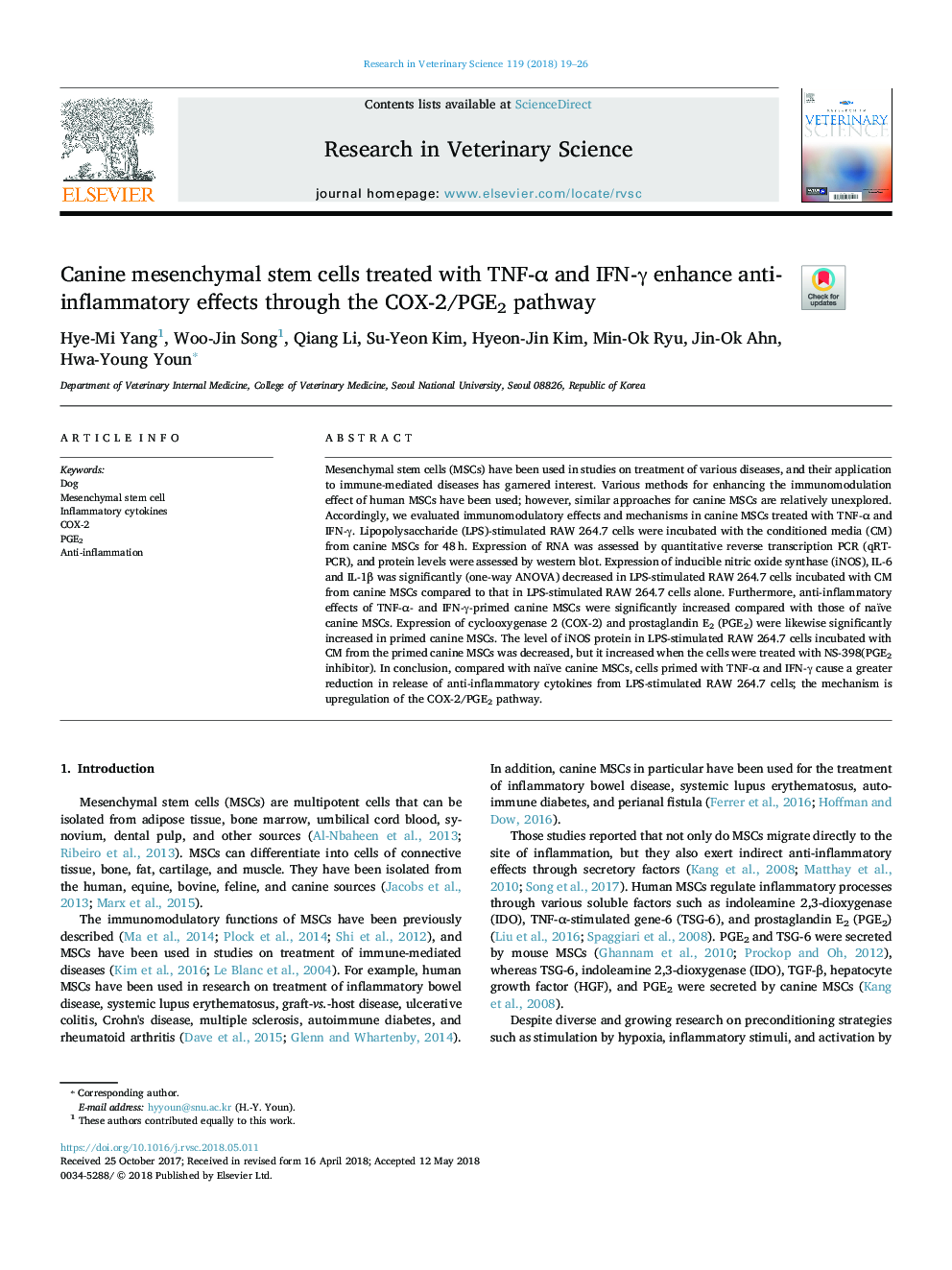| Article ID | Journal | Published Year | Pages | File Type |
|---|---|---|---|---|
| 8503887 | Research in Veterinary Science | 2018 | 8 Pages |
Abstract
Mesenchymal stem cells (MSCs) have been used in studies on treatment of various diseases, and their application to immune-mediated diseases has garnered interest. Various methods for enhancing the immunomodulation effect of human MSCs have been used; however, similar approaches for canine MSCs are relatively unexplored. Accordingly, we evaluated immunomodulatory effects and mechanisms in canine MSCs treated with TNF-α and IFN-γ. Lipopolysaccharide (LPS)-stimulated RAW 264.7 cells were incubated with the conditioned media (CM) from canine MSCs for 48â¯h. Expression of RNA was assessed by quantitative reverse transcription PCR (qRT-PCR), and protein levels were assessed by western blot. Expression of inducible nitric oxide synthase (iNOS), IL-6 and IL-1β was significantly (one-way ANOVA) decreased in LPS-stimulated RAW 264.7 cells incubated with CM from canine MSCs compared to that in LPS-stimulated RAW 264.7 cells alone. Furthermore, anti-inflammatory effects of TNF-α- and IFN-γ-primed canine MSCs were significantly increased compared with those of naïve canine MSCs. Expression of cyclooxygenase 2 (COX-2) and prostaglandin E2 (PGE2) were likewise significantly increased in primed canine MSCs. The level of iNOS protein in LPS-stimulated RAW 264.7 cells incubated with CM from the primed canine MSCs was decreased, but it increased when the cells were treated with NS-398(PGE2 inhibitor). In conclusion, compared with naïve canine MSCs, cells primed with TNF-α and IFN-γ cause a greater reduction in release of anti-inflammatory cytokines from LPS-stimulated RAW 264.7 cells; the mechanism is upregulation of the COX-2/PGE2 pathway.
Related Topics
Life Sciences
Agricultural and Biological Sciences
Animal Science and Zoology
Authors
Hye-Mi Yang, Woo-Jin Song, Qiang Li, Su-Yeon Kim, Hyeon-Jin Kim, Min-Ok Ryu, Jin-Ok Ahn, Hwa-Young Youn,
